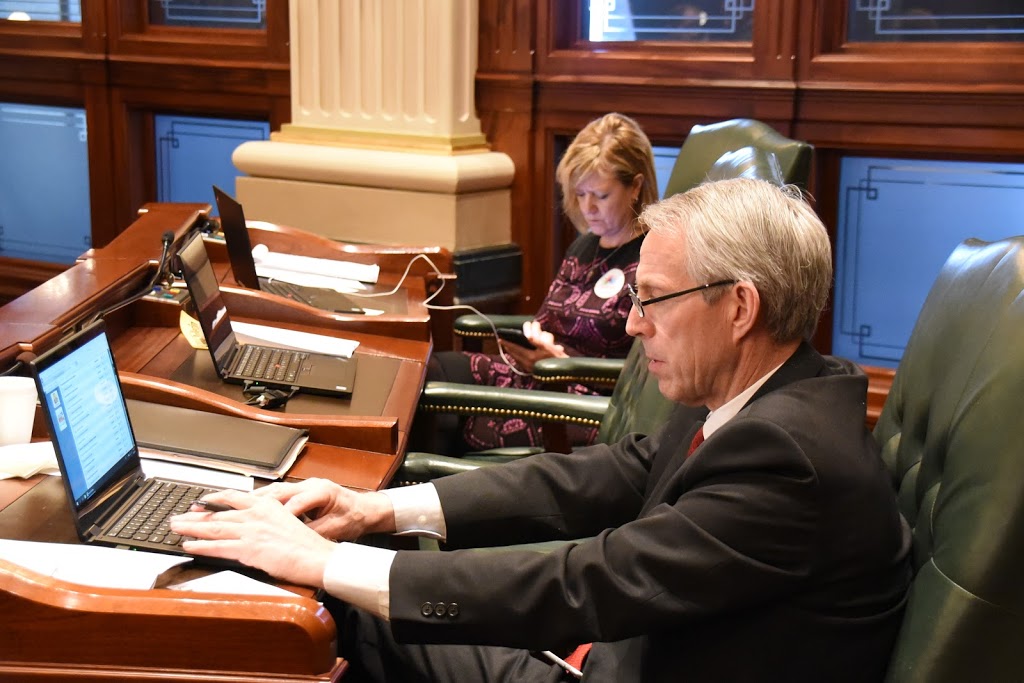State Representative Brad Halbrook (R-Shelbyville) opposed a package of anti-gun bills in the Illinois House of Representatives yesterday. These bills from both the House and Senate proposed more regulations and restrictions on gun owners and gun dealers in Illinois.
“I will continue to stand up for law-abiding citizens’ 2nd Amendment right,” exclaimed Rep. Brad Halbrook. “I opposed all of these bills today that are more about political posturing than good public policy.”
The various pieces of legislation introduced would raise the minimum age from 18 to 21 for certain guns 90 days after the effective date of this bill should it become law. There is also new Gun Dealer Licensing legislation that would impose burdensome state gun control measures. This proposal would exempts big box stores like WalMart from having to being licensed but every “mom & pop” dealer will have to have a state license for the owner, a state license for the dealer and possibly a local license in addition to the federal license that is required. The license would be $1,000 to be renewed every 5 years.
It is already a crime in Illinois to sell firearms without having a federal firearm dealer license (FFL). In addition (under this legislation) if the dealer wants to open a branch office, they must apply for another license. The Illinois Department of Financial and Professional Regulations (IDFPR) would be directed to monitor this licensing but doesn’t have the experience or knowledge regarding firearms. So, they would have to contract with the Illinois State Police (ISP) to carry this out and the financial impact to IDFPR is estimated at around 2 million dollars.
The bill allows for county sheriffs to certify compliance of applicants for licenses and to file objections to granting a license and allows for locals to impose additional requirements for gun dealers. The dealers can then be investigated by the state and the locals if there is an alleged violation.
The Gun Dealers Licensing would require 100 hours of experience before a person is eligible for licensing and that they have worked under the supervision of a licensee for 5 years. It would exclude military or retired law enforcement from licensing until they have completed those requirements.
